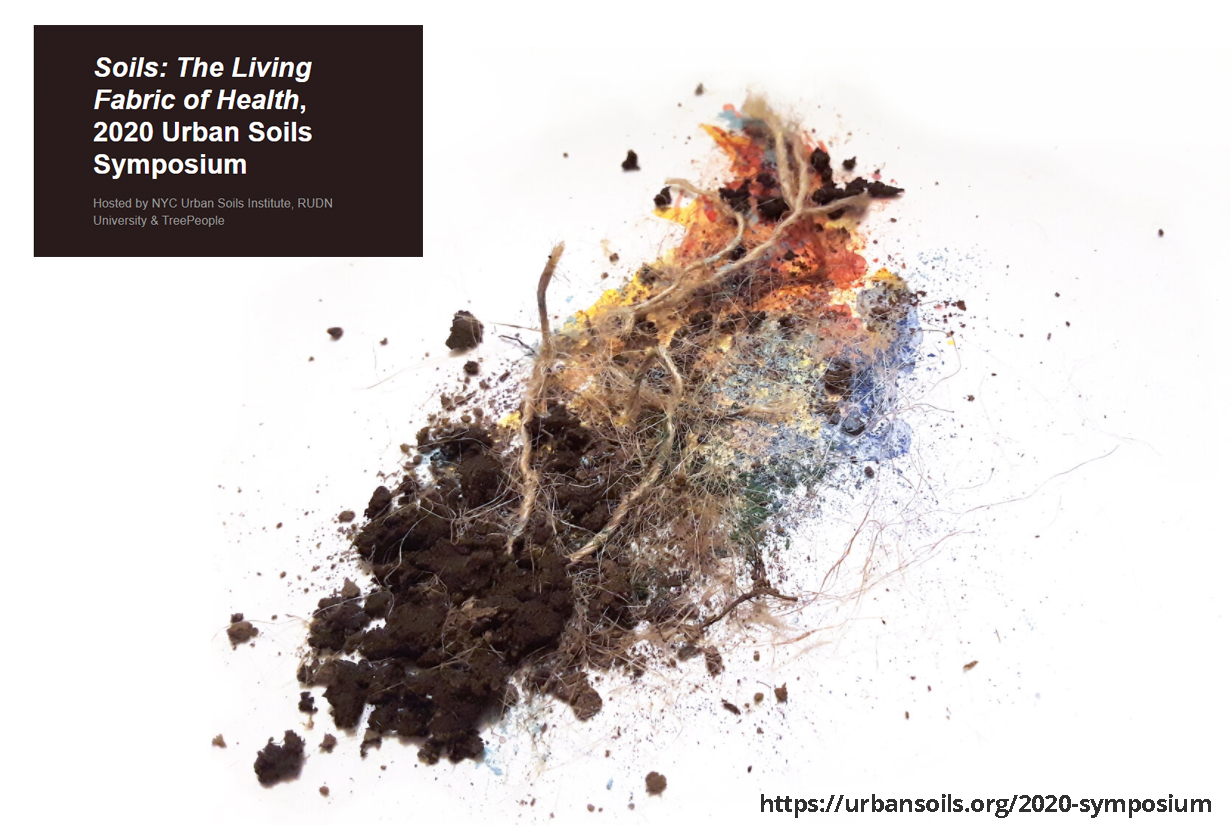Experts of the Smart Urban Nature laboratory Vyacheslav Vasenev and Maria Korneikova made presentations in two different sessions of the 5th Annual Urban Soil Symposium “Soils: The Living Fabric of Health, 2020”. The event was organized by the Institute of Urban Soils of New York, RUDN University and TreePeople. Traditionally, the symposium is held in New York (USA) on the basis of the Institute of Urban Soils, but this year, amid the pandemic, the event took the format of a virtual meeting using a number of interactive video conferencing platforms.
Every year, soil scientists from all over the world gather to participate in the symposium and raise topics related to the study of the diversity of urban soils, their biological and physicochemical properties, assessing the consequences of anthropogenic impact on soils, remediation of disturbed territories, and assessing the role of soils in conservation biodiversity of plants and living organisms.
Thus, this year the symposium program included more than 15 different events – sections and discussions, seminars, round tables and meetings of working groups. To compensate for the impossibility of hosting an annual art and soil festival, tours and exhibitions, interactive workshops, entertainment, performances and exhibitions were also included in the symposium. Artists, scientists, urban farmers, educators, landscape architects and architects shared their research and presented various interactive projects.
Vyacheslav Vasenev performed as a speaker in the Gardenator 3 section, which was dedicated to the creation, usage and philosophy behind engineered soils. His presentation, Soil Structures: From Creation to Sustainability, provided an overview on the ecological functions and ecosystem services that constructoles can perform in a city. Using the example of practical research of the Smart Urban Nature Lab, Vasenev assessed the ability of soil structures to store carbon, presented the experience of their use for the remediation of contaminated areas, and also showed the decorative function of lawn ecosystems for various bioclimatic conditions from tundra to steppe.
Maria Korneikova made her report “The mycobiota of urban soils in the Subarctic zone of Russia” in the section Microcosmos: the wellspring of evolutionary change, in which experts presented their works on the study of heterogeneity, similarity, causes and consequences of the soil microbiome or roots and the human intestinal microbiome, as well as the impact their relationship to the environment and human health. Maria’s report presented the quantitative and qualitative characteristics of the microbial community of soils in different functional zones of the city of Apatity (Murmansk region), revealed the features of the microbiome of urban soils in the North in comparison with background forest soils, as well as with urban soils in other climatic zones.
Besides RUDN University’s experts, more than fifty scientists from all over the world, incluing the USA and Mexico to France, Great Britain and Russia, took part in the event. In general, despite restrictions and changes in the format of the event, the symposium “Soils: The Living Fabric of Health, 2020” was held in accordance with its main goals – to gather scientists from all over the world for interdisciplinary knowledge exchange, as well as to establish new contacts for future collaborations and group projects.

